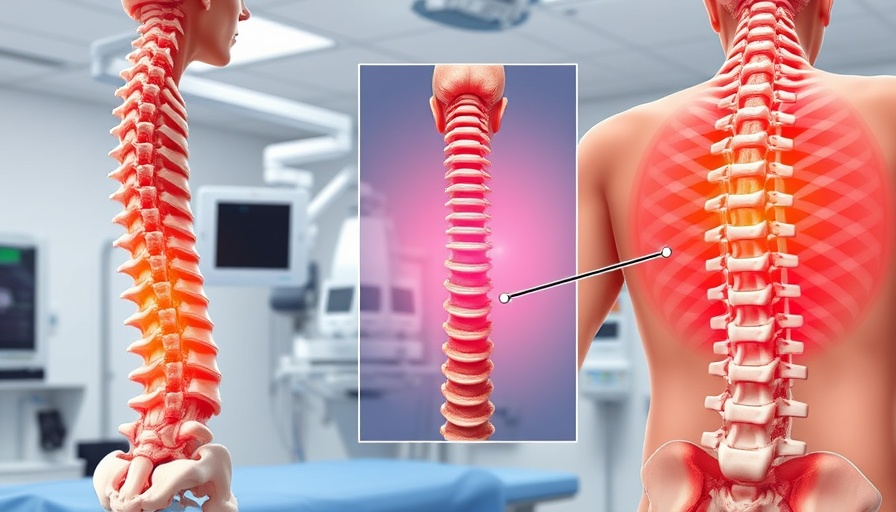
Understanding Spinal Compression Fractures
Spinal compression fractures are a serious yet often overlooked health concern, especially among older adults. A spinal compression fracture occurs when one or more vertebrae collapse due to pressure. These fractures can arise from common actions like coughing or bending, particularly in individuals with weakened bones, often due to conditions like osteoporosis. Dr. Jordan Sudberg, a noted pain management specialist, emphasizes the need for awareness of these fractures, as they can develop suddenly, leading to severe pain and complications like postural changes.
Who Is Most Affected?
The risk of experiencing spinal compression fractures primarily increases with age and certain health conditions. Women over 60, individuals with osteoporosis, long-term corticosteroid users, and those with a history of bone-related cancers are at an elevated risk. Awareness around these risks is crucial, as many fractures go undiagnosed. Symptoms can often be mistaken for typical back pain, delaying essential medical attention.
Recognizing Symptoms: Beyond Just Pain
It's vital to recognize that spinal compression fractures manifest symptoms that are often more severe than typical backache. Symptoms may include sudden sharp pain, difficulty standing or walking, height loss, and a hunched posture. “If anyone over 50 experiences sudden back pain, especially if accompanied by height loss, an evaluation for potential compression fractures is crucial,” says Dr. Sudberg. Early intervention can lead to effective treatment strategies.
Diagnosis and Treatment Options: Beyond Surgery
The pathway to recovery begins with an accurate diagnosis, which typically involves a physical examination and imaging tests, including X-rays and MRIs. Fortunately, most compression fractures can be managed conservatively. Options include pain medications, physical therapy, and, in some cases, spinal injections. Surgical options are available but are not necessary for every case.
The public must understand these aspects of spinal compression fractures. The insights shared by specialists like Dr. Sudberg highlight the importance of proactive health measures in managing and preventing these life-altering conditions.
To take control of your health and explore smarter investment opportunities, learn more here.
 Add Row
Add Row  Add
Add 

 Add Row
Add Row  Add Element
Add Element 




Write A Comment